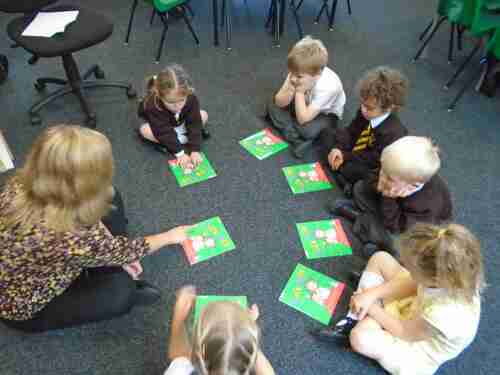
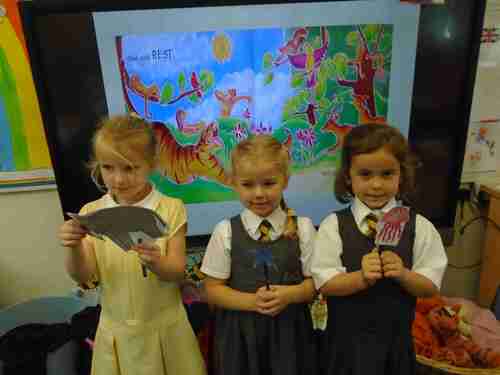
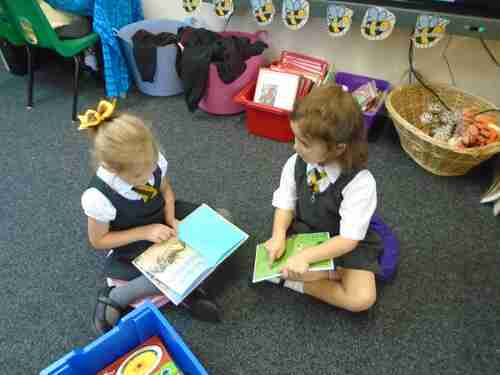
At Holy Trinity we believe that all our children can become fluent readers and writers.
This is why we teach reading through Little Wandle Letters and Sounds Revised, which is a systematic and synthetic phonics programme.
Little Wandle Letters and Sounds Resources for Parents
Please click on the Powerpoint below to find out more information about the phonics screening check that the children in year 1 will be completing in June.
Year 1 phonics screening check PowerPoint for parents
The links that appear on the powerpoint can be accessed here:
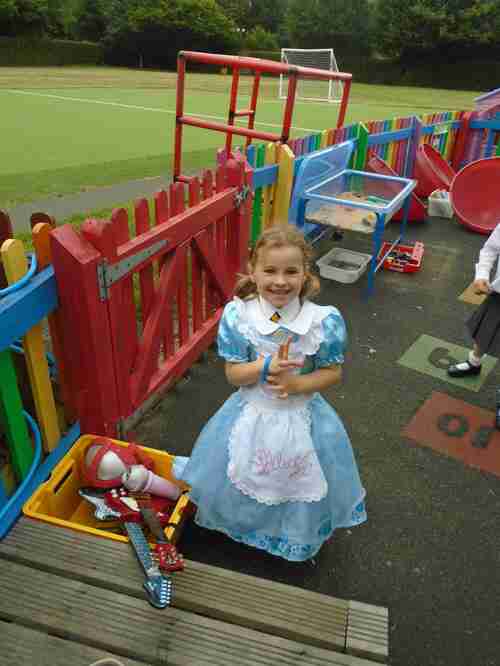
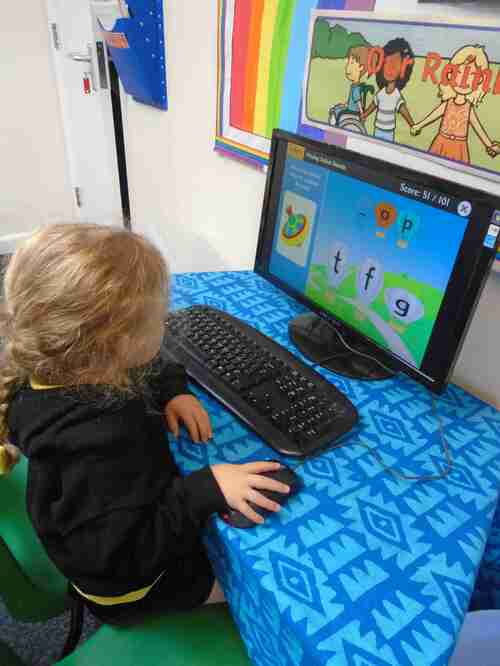
Little Wandle Letters and Sounds Revised progression document
Grow the Code grapheme mat phases 2 and 3
Grow the Code Grapheme mats phases 2,3 and 5
We start teaching phonics in Reception and follow the Little Wandle Letters and Sounds Revised progression, which ensures children build on their growing knowledge of the alphabetic code, mastering phonics to read and spell as they move through school.
Please click on the videos below to hear how to pronounce each sound correctly:
Please see below the powerpoint slides that were shared with the parents in EYFS and Year 1.
These slides give information about the phonics your child will be learning in the Autumn Term in classes 1 and 2.
Little Wandle Parent PowerPoint EYFS Autumn Term
These slides give information about the phonics your child will be learning in the Autumn Term in classes 3 and 4.
Little Wandle Parent PowerPoint Year 1 Autumn Term
To develop early reading, we use books that are categorised into phases and sets of sounds which link to the child’s stage of learning and link to the sounds the children are learning during their phonics lessons.
During early reading development, the children are assessed regularly to identify the sounds they are secure on. This informs the choice of reading book the children will read in class. They read the book in class as a whole group and on an individual basis and then take the book home to share with their parents.
This approach enables the child to build confidence when reading the book throughout the week and then share this with their family at home at the weekend.
As we assess the children regularly we are able to identify the letter sounds the children are secure on and also provide support with the sounds they are unsure of helping the children to progress quickly and confidently with their letter sound knowledge.
Supporting your child with reading
Although your child will be taught to read at school, you can have a huge impact on their reading journey by continuing their practice at home.
There are two types of reading book that your child may bring home:
1. A reading practice book.
This will be at the correct phonic stage for your child. They should be able to read this fluently and independently.
2. A sharing book.
Your child will not be able to read this on their own. This book is for you both to read and enjoy together.
Early reading is monitored regularly by the reading lead.
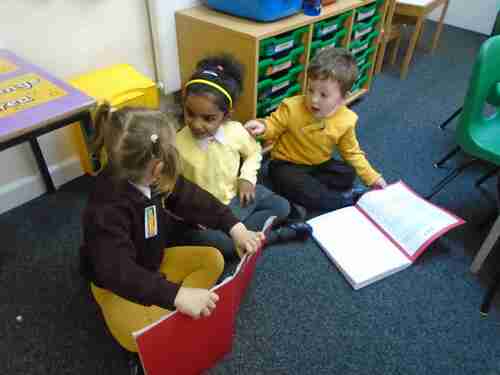
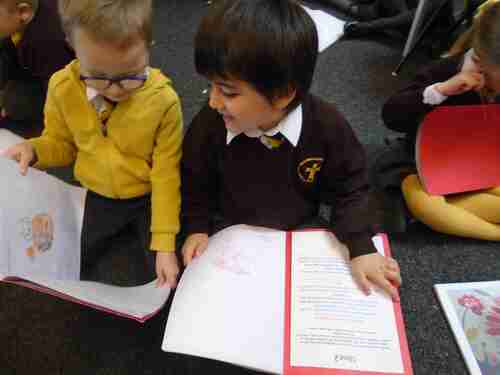
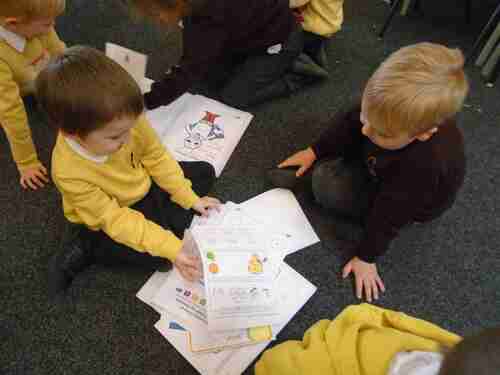
Reading within key stage 1 is done through supporting the child to break down the word, supporting them to become independent with their reading.
Each individual child has a school book in which is at their stage of learning based on the simple view of reading. Each child will have a reading age that is given using the Salford assessment resources; however, we recognise that although a child may have a good reading age, their comprehension may need development. With these two in mind, a coloured ‘band’ is given to which the child can select from. Each child is expected to read daily at home and will be organised based on their current level into daily and weekly readers within class.
Each child will also have a library book which can be at any level to aid enjoyment and spark interest in books.
Each class will enjoy a class reading book which can be read at any interval and can be linked to their topic.
KS2 use a template for recording comprehension answers and focuses on the main areas of reading and reading comprehension:
Reading opens many doors for children. Sharing a story and sharing language can help your child understand the world better. Did you know: reading comprehension relies heavily on background knowledge and vocabulary. We need to know a whopping 95% of the words in a text in order to comprehend it! Below are some resources that you may find useful to help boost the effectiveness of story and sharing time.
https://www.booktrust.org.uk/books-and-reading/
https://www.booksfortopics.com/yeargroups
Booktrust is an independent charity that works to bring together readers and books. It runs the books for babies project Bookstart, funded by Sainsbury’s. The site includes lots of information on books for children and adults, and book prizes.
Virtual School Library | Oak Academy (thenational.academy)
National Literacy Trust Virtual School Library | Words for Life
A very useful website for helping children from Reception to Lower Key Stage Two with decoding words through phonics.